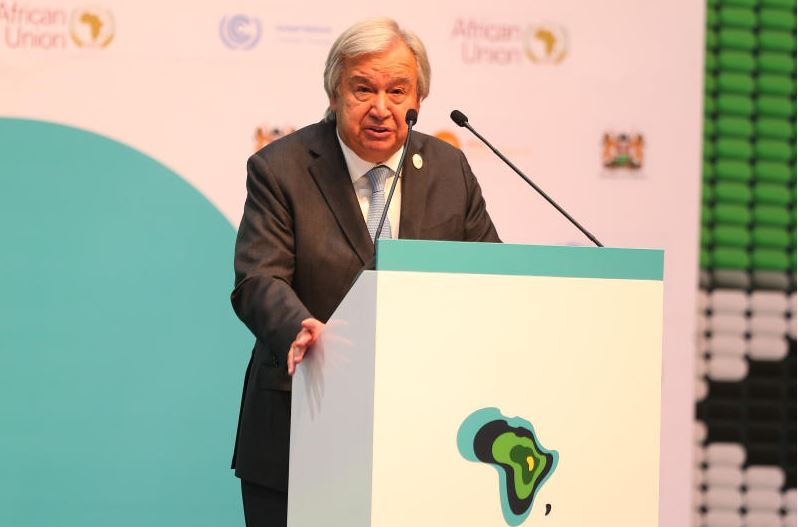
It is 80 years since the creation of the United Nations in 1945, when most African countries were European colonial possessions. Franklin Delano Roosevelt, an admirer of Woodrow Wilson and his League of Nations experiment, actually laid the foundation for a post-World War II organisation that would be stronger than the League.
Since the major weakness of the League of Nations was the absence of major powers — the United States by choice and the Soviet Union by exclusion — Roosevelt crafted a body to safeguard the interests of the big powers. He created the UN Security Council, whose five permanent members were each, through veto power, protected from global democracy. He died and left Vice President Harry S. Truman to nurture the new world body. The UN has decided to celebrate its 80 years of existence, although the celebrations are low-key.
Two competing post-World War II forces played out at the UN. With Roosevelt having angered British Prime Minister Winston Churchill by calling for the termination of colonies — as they breed war — there was a strong anti-racist wind against racism and colonialism at the United Nations. Secondly, the two powerful former allied nations moved to fill the power vacuum created by the war. It was the Cold War between the United States-led conceptual West and the Soviet-led socialistic bloc, which intensified due to their ideological differences. Thus, both the Cold War and anti-colonialism attracted the UN's attention.
The UN became the solver of difficult global issues. When Zionists harassed Britons out of Palestine, the UN split Palestine into Jewish and Arab zones. The UN, however, was unable to stop a newly created Israel from evicting Arabs from Palestine, who then became the Palestinians. Regarding former Italian colonies, the exigencies of the Cold War led the UN to create the Kingdom of Libya, return Somalia to Italy on condition that it prepared Somalis for independence within 10 years, and ask Ethiopia to organise a referendum on the future of Eritrea. Although Italy had been on the wrong side of World War II, American Cold War fears that turning Italian colonies into UN trusteeships might enable the Soviets to reach Congo — with its strategic minerals — influenced these decisions.
One of the UN’s biggest achievements was encouraging the collapse of racism as an accepted ruling ideology, which in turn led to the fall of colonial states. This shift affected global thinking and governance, as former colonies became UN members. There were occasional frictions when former colonies became assertive in making demands for change in global bodies. Apartheid South Africa became a pariah state; new institutions to cater for global socio-economic wellbeing arose; and even the dating system was adjusted to reflect religious inclusivity.
The diversification of UN headquarters from New York to Geneva, Vienna, and most importantly, Nairobi, was significant. The campaign to bring the UN to Nairobi was a masterstroke of Kenya’s diplomatic skills in the 1970s, when it promoted what Munyua Waiyaki termed “dynamic compromise” as its operating doctrine.
At times, the UN came under heavy criticism from major powers such as the United States for seemingly daring to question American interests. African UN members helped to bring Communist China into the UN as the legitimate China. Using UNESCO to reform the world economic and information order angered the conceptual West. The US considered giving the Palestinians a hearing to be so anti-West that US UN ambassador Daniel Patrick Moynihan labelled the UN a dangerous place. Furthermore, US UN ambassador Andrew Young was fired for talking to Palestinians.
Anti-UN sentiments have seemingly resurfaced in Donald Trump’s United States, which has returned to isolationism. It dislikes global commitments unless they are transactional. It is quitting UNESCO and reducing its involvement in UN functions. The planned UN@80 celebrations are thus taking place under a dark cloud. While UN Secretary-General António Guterres remains optimistic, the 1945 euphoria has faded into a despairing whimper.







